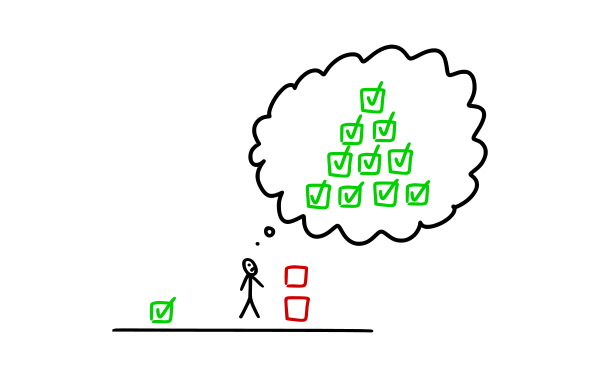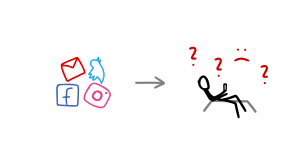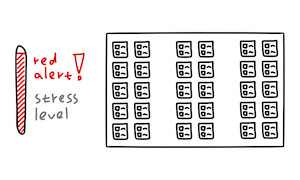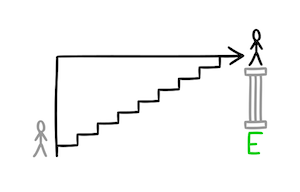The danger of expecting work to be easy and fun

You frequently read or hear on social media:
Follow your passion!
Life’s about having fun
To add to this, we only see the results and highlights but we don’t see all the processes behind them.
The beautifully edited video on YouTube from a foreign country? It required dozens of hours editing, hundreds of hours improving the editing skill, the hassle of traveling, positioning the camera carefully to take the shots…
The cool new app? That required thousands of hours spent on learning the software development skill, testing, design, etc.
The muscular guy’s before/after photo? Working out for 5+ years, keeping a strict diet, likely taking P.E.D,...
The result of all of this is wrong expectations for ourselves that aren’t connected to reality.
We think that progress is supposed to be faster.
We think that things should be easy.
We think that things should be fun all the time.
In reality, things might be boring, difficult, sometimes even painful.
This leads to two frequent problems:
- Abandoning efforts early because they aren’t as easy or fun as we might have imagined.
- Thinking there must be something wrong with us. Why is my progress so slow? It’s not easy, I must be dumb or not good enough, I can’t do it…
Expecting that things can get difficult will help you stick with it
On the other hand, if you expect the journey of learning a new skill to get a bit bumpy, it won’t throw you off.
This gives you the ability to be ready when it happens and to create a contingency plan for it.
Okay, if I’m not motivated, if I don’t feel like studying, I’ll at least recap what I’ve learned so for for 15 minutes. 15 minutes are easy and maybe you’ll feel an itch to learn something new afterwards.
If I don’t feel like building the new feature in the app, I’ll sketch out the logic of it on a piece of paper for 15 minutes. This often gives you new ideas, helps you understand the problem.
When things get difficult, it’s much easier to handle it when you’re expecting it to be like that. And if you do a bare minimum, it’s still better than nothing and can keep you going.
Sticking with things can lead to new interests
Not abandoning things immediately can help us develop a new interest.
Imagine you go to a gym for the first time - it sucks, you’re weak, and afterward every muscle hurts for a few days… But if you stick with it, you get stronger, your muscles grow and it doesn’t hurt as much. You see the progress, and it becomes motivating.
Things often become fun once we get better at them.
Here are a few examples:
Ice-skating sucks if you’re doing it for the first time, but it’s so much fun once you learn it. You’re faster than the wind, you can play ice hockey,...
History can be boring if it’s just full of facts, but if you dive deeper and start understanding the complexities and all the context, it becomes interesting. (Hardcore History podcast is the best way to do this).
Staring at a blank page and not knowing what to write about isn’t fun. But having loads of ideas because of reading and thinking, and putting them into words on paper is so much fun.
But don’t expect everything to be hard
Of course, there is this second extreme (that we covered in Today Shouldn’t Suck) and that’s people who think that everything must be difficult and they have to struggle. Unless you’re not sleeping on the floor and eating only ramen noodles, you’re not working hard!
In the spirit of our blog, we like to look at the full picture instead of taking one side of the argument. There is some merit to the idea of hard work, but like a lot of things, it should be balanced. If everything is hard for a long time and you start avoiding work and watching videos on YouTube for 8 hours, it might be a sign that that type of work is not for you.
Use an intelligent approach
Expect that things can be difficult. They don’t always have to be fun. If you’re starting out, be open to new experiences and some struggle. See if you become better with time.
But also don’t make a martyr out of yourself by working super hard and being in pain all the time. Because it doesn’t count.



